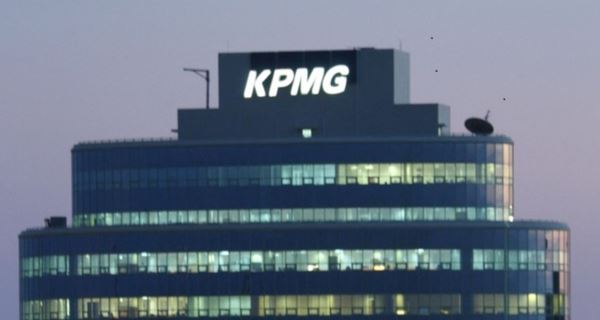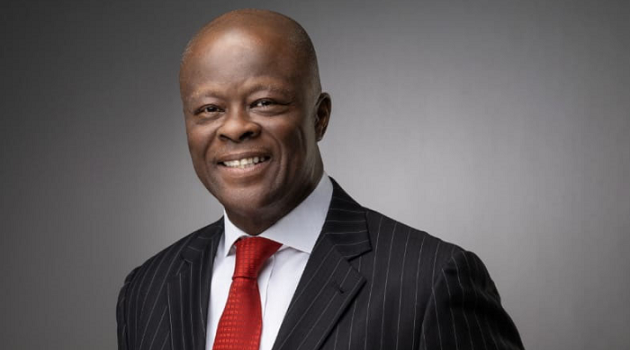E-Financial
Nigerian Banks Spend Billions Annually on KYCs – KPMG

A KPMG report has revealed that Nigerian banks spend billions of naira annually to implement the Know Your Customer (KYC), which is a compulsory regulatory tool used to reduce the menace of money laundering, terrorist financing and corruption, especially in managing public finance.

The report stated that its survey showed that individual banks could spend between N50 million and N400 million per annum on KYC requirement depending on the customer base of the bank.
The report also stated that on average, between 15 to 30 per cent of customers who start the KYC process do not complete it, because the process is too manual, information required would be difficult to obtain and time consuming and could last for more than four weeks in some cases.
It also noted that the KYC requirement could also be an inhibitor to the attainment of financial inclusion policy in Nigeria that did not have centralised identity management systems.
The report, which is titled “KPMG 2021 Know Your Customer (KYC) Survey: KYC Challenges and Opportunities in Nigeria,” revealed that 85 per cent of the banks that responded to its survey stated that KYC process constituted a significant cost to their operations, with 71 per cent anticipating that the cost of KYC would continue to increase.
In addition, more than 70 per cent of the responding banks, according to the KPMG, spend about N10,000 as direct cost for identity and address verification of a customer while others spend as much as N40,000 on the KYC of a customer.
The key drivers of the continual increase in the cost, according to the report, included frequent changes in regulatory requirements, financial inclusion programs, increase in customer base, initial cost of acquiring technology needed to implement KYC, more complex ownership structures of some businesses operating bank accounts and increase in the number of employees required to administer the KYC unit in a bank.
The survey findings added: “Our analysis of the data reveals that for many banks, the direct cost of KYC is below N50 million per annum, but depending on the size of the bank it can rise to as much as N400 million per annum, which do not include the indirect cost of KYC.
“Banks also incur significant indirect cost in performing KYC that include cost incurred in staffing the compliance office/sanctions screening desk, purchasing, installing and implementing technology, storing and managing customer KYC data, cost incurred due to regulatory reporting, fines incurred as a result of failure to report, opportunity cost incurred as a result of customers who are discouraged from opening accounts due to inefficient or cumbersome KYC systems.”
KPMG also highlighted that some of the topmost challenges banks encountered while implementing KYC in Nigeria include identifying complex legal structures, verifying addresses and identities, identifying and verifying politically exposed persons (PEPs), as well as remediating rather high-volume of legacy accounts.
It added: “Due to the current manual nature of searches at the Corporate Affairs Commission (CAC) as well as continued existence of jurisdictions designated as tax/secret havens – it is difficult for banks to unravel complex legal structures, especially where these complex legal structures are employed to mask true or ultimate beneficial owners.”
The report also noted that address verification is expensive and cumbersome in Nigeria and might not be effective in ascertaining the true location of potential money launderers or terrorist financiers during investigations.
It acknowledged that the deployment of Biometric Verification Number (BVN) and the ongoing National Identification Number (NIN) registration would continue to contribute to addressing this challenge of disparate identity systems in Nigeria that made it difficult for banks to effectively and efficiently identify individuals.
Mr. Saheed Olawuyi, Partner and Head of Forensic Services, KPMG in Nigeria, explained: “It is important for regulators and banks to continuously develop ways to address the KYC challenges, while not compromising the integrity of the financial systems.”
The report recommended that banks should continue to explore technology as a way of tackling the challenges of KYC in Nigeria and create opportunities to share the cost of KYC among them by maintaining common KYC utility facilities.
The KPMG report said: “We would like to encourage more investment in the deployment and adoption of artificial intelligence, machine learning and robotics to automate certain segments of the KYC process, so as to build more efficiency, accuracy and predictive capabilities in the KYC process.”
The report also urged the CAC to further enhance its recently launched digital platform to seamlessly enable users to carry out search on the directors and shareholders of companies, in order to drive efficiency of corporate onboarding and identification of complex ownership structures.
It also called on the CBN and other relevant regulators and stakeholders to streamline the definition of PEPs and “create a collaborative environment where all parties come together and proffer solutions to common KYC issues.”
E-Financial
Heritage Bank Depositors Seek National Assembly’s Help to Recover Trapped Funds

Depositors of Heritage Bank with deposits exceeding N5 million have appealed to the National Assembly to intervene and assist in the resolution of the bank’s license by the Central Bank of Nigeria (CBN).

The depositors claimed that the revocation has left them in financial distress, with their livelihoods and businesses hanging in the balance.
In a statement, the depositors expressed frustration that despite previous assurances from the CBN that the bank was not in distress, they have been unable to access their funds.
The situation, according to them, has led to widespread economic hardship with businesses shutting down, life savings crumbling, and daily expenses coming to a standstill.
The statement reads, “Some depositors have died from heart attacks, while others are hospitalized. We are at a loss, and our families are suffering.
“We are perplexed by the action exhibited by the CBN after Unity Bank merged with Providus Bank, which ensured a smooth transition of depositors. We are aware that First Bank was paid N460b of its deposits in Heritage Bank before its liquidation. Why should we be treated differently, subjected to an everlasting process to recover our funds from the sale of Heritage Bank’s properties?
“We plead that you intervene by advising CBN to pay all depositors in full without further delay. Advise that a few other banks absorb the depositors while ensuring a smooth transition as was done in the case of Unity Bank and Providus Bank.
“Utilize Heritage Bank’s reserve ratio to settle depositor’s claims. Treat depositors equally as was done with First Bank and verify NDIC’s claim of paying the insured sum to 85% of depositors and ensure prompt payment to all eligible depositors.”
E-Financial
Zumax Files N4.1Bn Suit against CBN over ‘Fraudulent’ Receivership

Zumax Nigeria Limited, an oil services company, has filed a N4.1 billion lawsuit against the Central Bank of Nigeria (CBN), alleging gross negligence and complicity in what it calls a fraudulent receivership imposed by the apex bank.

In the case, which is before the Federal High Court, Lagos, Zumax claimed that the CBN failed in its statutory duty to supervise banks and protect customers’ interests.
At the hearing of the matter on Tuesday before Justice Akintoye Aluko, Chief Wole Olanipekun (SAN) told the court that the Plaintiff (Zumax) had an application dated February 20, 2025, asking the court to hear the application.
He urged the court to allow him to move the application as the defendant had responded.
Olanipekun also told the court that the Plaintiff and defendant’s preliminary objections can be consolidated and heard together.
He stated that the priority of which application to be heard first shouldn’t arise as the Plaintiff has not opposed the hearing of CBN’s preliminary objection.
But Adeleke Agboola (SAN), counsel, counsel, told the court that the defendant has a preliminary objection in the suit, which commenced as a writ of summons challenging the jurisdiction of the court.
He argued that CBN filed its notice of preliminary objection within time and that the Plaintiff has responded to it.
Agboola said: “This preliminary objection has priority over any other applications. The Plaintiff’s application is not meritorious.
“There is no suggestion by the claimant that we did not file within time. We are saying that this court does not have the jurisdiction to hear this matter. I urge your lordship to allow us to argue this matter.
“There is no doubt that preliminary objection takes precedence; it says it must be heard first, and determining our objection is very serious; we have complied strictly by the rules.
“We urge this court to hear the preliminary objection and dismiss the Plaintiff’s application.”
In his response, Olanipekun said: “My learned friend said the application we filed is not meritorious. It is the court that can make any pronouncement on that.
“My lord, even when we talk of being tidy, we are not saying the court should not hear his preliminary objection. He is now the one saying that our application should not be heard.
“The court has to determine whether the objection has to be heard first or the Plaintiff’s application dated February 20, 2025, has to be heard first.
“It’s no longer the law; in fact, it has never been the law that when there is a preliminary objection, the court will say let’s take it first. We urge your lordship to take our application that has not been contested by the defendant.”
After listening to the submissions and arguments of both parties, Justice Aluko adjourned the case till April 22, 2025, for ruling on which application to hear first.
According to court documents, Zumax had and maintained its account with the defunct IMB International Bank Plc., which, under several mergers and consolidations of banks, ultimately fused into the much larger banking institution known as First City Monument Bank (FCMB).
The Plaintiff said it obtained a facility from IMB International Bank, an overdraft facility of N50m, which was later increased to N200m in/or at the first half of 1998.
However, the bank allegedly inflated the company’s debt and, by December 6, 2002, claimed it had risen to N465.6 million, the claim which was vehemently disputed by Zumax.
Zumax contends that FCMB, under its former Managing Director Edwin Chinye, took control of its foreign currency earnings held in a JP Morgan Bank account through its sister company, Redsear Limited.
According to the plaintiff, the Bank’s Managing Director not only insisted upon and got shares in Redsears Limited and a directorship of that company as a condition precedent for the loan, he also allegedly inserted himself as the lone signatory for the company’s bank account with JP Morgan Bank.
The plaintiff further alleged that “the bank misappropriated $ 4 million from this account, a shortfall discovered during an audit.
“Rather than addressing the dispute, FCMB appointed receivers to take over Zumax’s operations, a move the company described as fraudulent.
“The receivership, which lasted from December 2002 until 2022, led to severe financial losses, including the collapse of Zumax’s business and the loss of contracts with multinational oil companies such as Chevron.
“The company claimed it was unable to operate for two decades due to the receivership, which was based on what it describes as an entirely fabricated debt.
“Zumax further alleged that despite repeated petitions, the CBN failed to investigate FCMB’s actions or intervene to prevent the alleged financial mismanagement.
“The company maintained that a 2007 CBN report confirmed that it had paid over N547 million to FCMB, proving it was never in debt to the bank.
“Additionally, the Court of Appeal ruled in December 2021 that the consent judgment upon which the receivership was based was fraudulent and should be set aside.”
The plaintiff is seeking a court declaration that the CBN was negligent in its duty to regulate Nigerian banks.
It’s also asking for special damages amounting to $ 41 million, including lost income and asset depreciation; general damages of N2 billion, exemplary damages of N2 billion, and legal costs amounting to N100 million.
But the CBN’s preliminary objection is challenging the jurisdiction of the Court to hear the matter.
E-Financial
FG to Harmonise Fiscal Data Across MDAs

Efforts to harmonise fiscal data across government institutions have commenced in earnest, with Mr Wale Edun, minister of Finance and Coordinating Minister of the Economy, spearheading the meeting to achieve the mission.

Mr Wale Edun, minister of Finance and Coordinating Minister of the Economy,
Key stakeholders, including the Minister of State for Finance, Dr Doris Uzoka-Anite; the Accountant General of the Federation, Shamsedeen Babatunde Ogunjimi, and the Director General of the Budget Office, Mr Tanimu Yakubu, met on Monday with Edun, a statement issued by Director of Information in the ministry Mohammed Manga, said.
The said discussions centered on discrepancies in fiscal data across government institutions, which have affected Nigeria’s credit ratings and borrowing capacity.
The Minister emphasised the need for synergy between agencies such as the Budget Office, the Accountant General’s Office, and the Debt Management Office (DMO).
“Delivering accurate and comprehensive fiscal data is critical to economic stability and investor confidence,” Edun said Attendees agreed on the establishment of a Fiscal Data Coordination Framework, which includes a main committee, a subcommittee, and technical teams dedicated to standardising fiscal reporting methodologies and economic assumptions.
The Minister affirmed that Nigeria must take ownership of its fiscal data credibility, reducing dependence on external institutions.
The meeting concluded with a firm commitment to implementing the framework, reinforcing transparency, strengthening investor confidence, and enhancing Nigeria’s economic outlook.

 News2 days ago
News2 days agoPolice Arrest 4 Bank Staff over Alleged ₦270m Fraud, Money Laundering

 E-Financial2 days ago
E-Financial2 days agoUBA Grows Profit to ₦804Bn, Declares N3 Kobo Final Dividend

 E-Business2 days ago
E-Business2 days agoNIMC to Prosecute Nigerians Printing ‘NIN Cards’, Says Only Slip is Legal

 E-Business2 days ago
E-Business2 days agoUnleashing Nigeria’s Business Potential: The Cloud as Catalyst for Growth

 Telecom2 days ago
Telecom2 days agoOpen Access Fabrics Set to Drive Connectivity to Achieve a Digital Economy

 General News2 days ago
General News2 days agoAuthorities Seize 1842 Devices in African-Wide Cybercrime Crackdown

 Telecom2 days ago
Telecom2 days agoMTN Nigeria and Pan-Atlantic University Invite Media Practitioners for 4th Media Innovation Programme

 E-Financial2 days ago
E-Financial2 days agoEnza Raises $6.75m Seed Funding to Boost Embedded Payment Solutions Across Africa



























